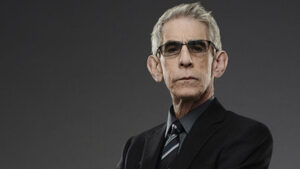
In the 1970s, I would often drive into Manhattan from Long Island to go to Catch A Rising Star, Rick Newman’s standup comedy club on the Upper East Side.
I was interested in the array of young comics who populated its stage — Paul Reiser, Bill Maher, Larry Miller, Billy Crystal, Carol Leifer, Jerry Seinfeld, Gilbert Gottfried — there was no one like Richard Belzer. He was the emcee, with the authority to choose who went on when. He also saved substantial amounts of stage time for himself, often merely riffing with audience members — “crowd work,” as it’s known in the business. This often involved insulting the patrons. Not to the point where they got angry and left, but to make them feel like they’d become part of the show simply by attending. He also did the definitive Mick Jagger impression as a “rooster on acid.”
As the emcee, Belzer understood his responsibilities to the other performers. If another comic did a hot set, Belzer kept the pace moving and quickly brought up the next one to ride that wave. But if someone died up there, he’d spend five, ten, fifteen minutes prowling the stage and getting the crowd back, giving whoever followed a hotter room than they would have faced otherwise.
I think it was in 1979 that Belzer — who had starred in the movie “The Groove Tube” and done audience warmups for “Saturday Night Live” — suddenly became half of a morning radio duo when “Brink and Belzer” debuted on NBC’s always-struggling flagship AM station, WNBC. This was about a year after Don Imus and the rest of the on-air staff had been unceremoniously removed from the airwaves by the new program director, Bob Pittman (who now runs iHeartMedia).
Chosen to succeed Imus was Pittman’s 24-year-old girlfriend, Ellie Dylan. Replacing a legend is never a good idea. You’re much better off if you replace the replacement, which is exactly what Scotty Brink did. He was a veteran disc jockey getting a shot at morning drive in the nation’s largest market, and was no doubt surprised when Pittman brought Belzer in to do a few minutes of schtick one day. And then the next. And the next. Belzer started spending more time with Brink until they became full-time on-air partners.
Having been part of an arranged morning radio marriage, I can tell you how difficult they can be. Each half is always wary of the other and there can be problems with jealousy and who’s running the show. But starting slowly worked out well for Brink and Belzer. The former turned himself into an adroit straight man, understanding when and how to set up Belzer. Meanwhile, the latter managed to pull back his acerbic nature a bit — he still insulted callers as if they were in the audience at Catch — and seemed to understand the demands of the format for shorter segments that ended with a punch.
Sadly, Brink and Belzer only lasted a couple of years at WNBC before management changed again and Imus was brought back from his exile in Cleveland. I think Brink moved on to a station in Denver while Belzer returned to standup comedy — which he’d never really given up, which is why he usually missed the first half-hour of the WNBC show, showing up at 6:30am instead. He also started getting work in movies like “Night Shift,” played a nightclub emcee in others (including “Scarface” and “Fame”), and got bit parts in TV shows like “Moonlighting” and “Miami Vice.”
Belzer’s close friend Bill Scheft — widower of Adrienne Tolsch, another amazing emcee at Catch in the same era — was working on a documentary about Belzer that may see the light of day eventually. In addition to footage of his standup work, it will likely include stories of Belzer’s penchant for conspiracy theories galore, as well as the time Hulk Hogan was a guest on Belzer’s Lifetime talk show “Hot Properties” and put the host into a sleeper hold, an incident which earned Belzer a large monetary settlement.
Of course, Belzer was best known as Detective John Munch, a character he first portrayed on “Homicide” (I watched the whole series), then on “Law and Order: SVU” (I’ve never seen a single episode) and in eight other cop shows. You can read about that aspect of his career in any of the other obituaries online today. But I’ll always remember him as a go-to standup and half of a weird radio experiment that didn’t last.
